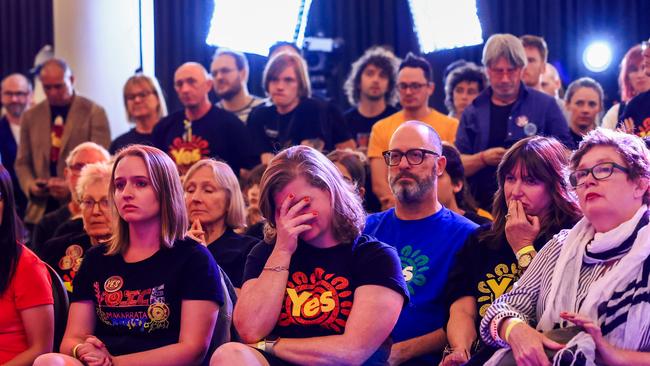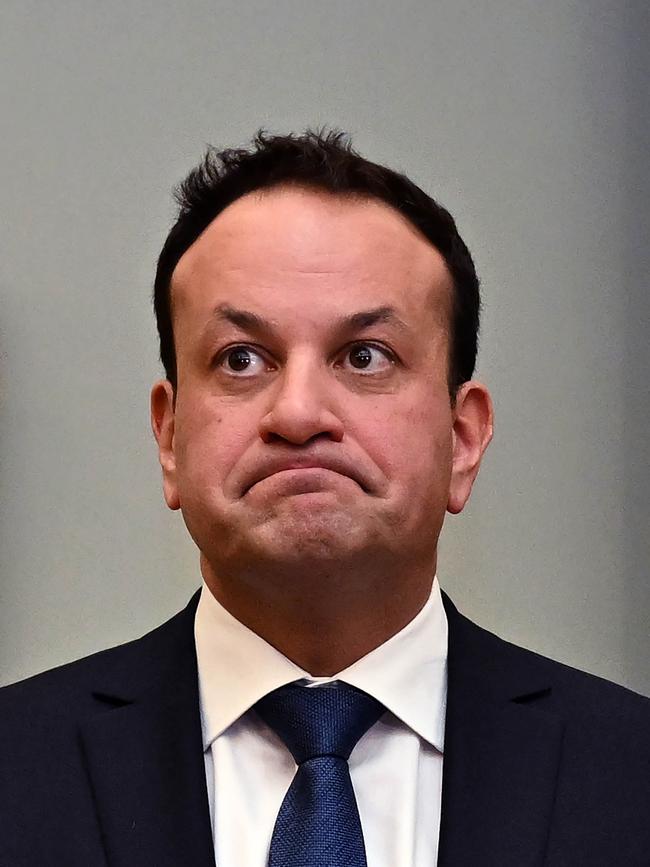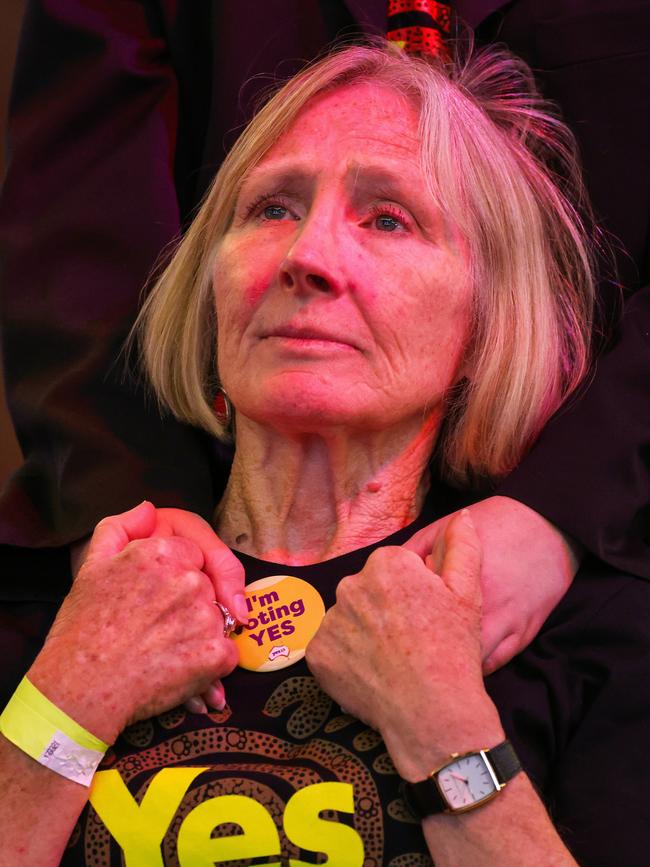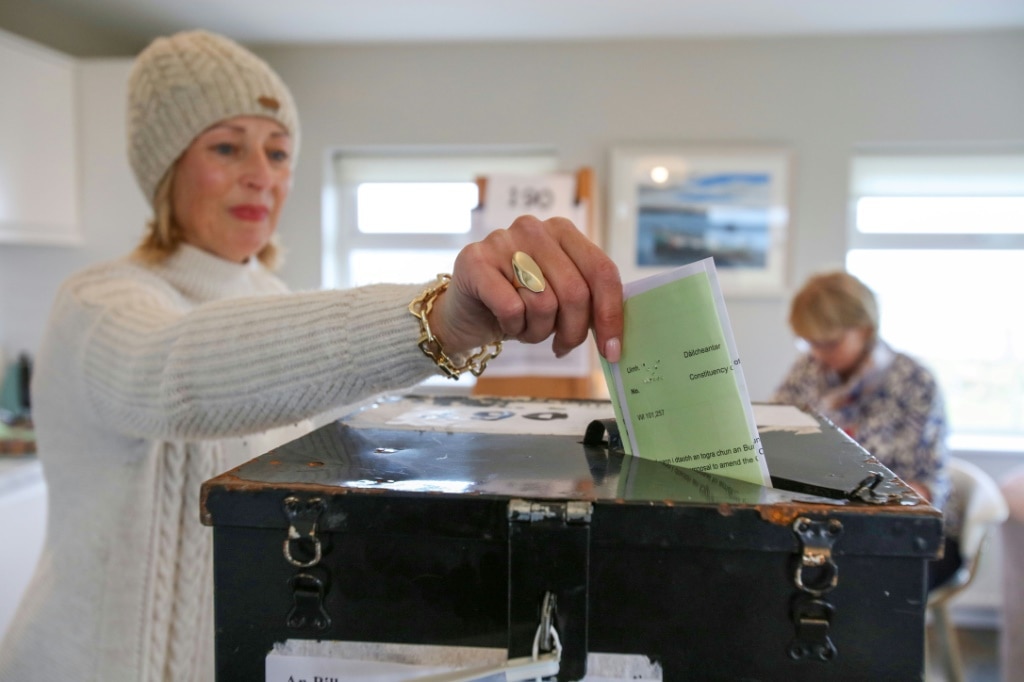
Brexit broke 52-48 (in favour of independence); Euro progressives worked tirelessly to undo this result. The Chilean referendum (on a new green constitution in 2022) was rejected, 62-38. Anthony Albanese’s voice went down 60-40. And Ireland has just rejected a woke rewrite of its constitution by an even larger majority. What is going on? Why is the left losing these big battles in the culture war?
The Irish result has not grabbed headlines. Only a few conservative-leaning media outlets have given it any space. But, as we debate whether we have reached “peak woke” in the West, the episode is an important one.
The elite of progressive, modern Ireland (exhibiting a moral condescension like its conservative, Catholic predecessor) determined to rewrite clauses of the 1937 constitution that matched its ideological preferences.
Out was to go “very old-fashioned, very sexist language about women”, said Leo Varadkar, Ireland’s Taoiseach (pronounced “t-shock”, the Prime Minster). In was to come gender neutrality and the removal of women from the clauses designed in the 1930s to protect their special status as mothers. The vote was timed, with all irony escaping the Irish left, to fall on International Women’s Day.

Varadkar’s plan was doubly rejected. By huge margins. Sixty-seven per cent wanted to retain recognition of “the family as the natural primary and fundamental unit group of society, and as a moral institution”. A remarkable 74 per cent voted to protect mothers from the necessity of careers outside the home – a clause always more honoured in the breach than the observance.
On International Women’s Day, three-quarters of Irish voters committed what has become a heresy for the day’s ideologues. They wanted the state to continue to recognise “that by her life within the home, woman gives to the state a support without which the common good cannot be achieved”. The trendy new clause would have removed this recognition of women. Ireland voted to retain it.
The Guardian spun the result as a failure of referendum campaign leaders – sound familiar? – and as anything other than a repudiation of one of its central creeds: that people who identify as male should share an equal burden in child-rearing. But a staggering 94.3 per cent of Irish people who stay home during their kids’ early years are mothers. This outrageous refusal to embrace woke orthodoxy must be explained by anything other than the choices mothers make.
My son was born in Dublin. My wife opted to stay home and look after him. The Irish constitution gave her the legal right and moral support to do this. And it is this which my son’s fellow citizens opted to uphold when “modern Ireland” sought to knock it down.

All mothers, if they want to build careers or simply stay afloat financially, as Janet Albrechtsen argued in these pages, have the right to pay young care workers (unfortunately usually much poorer and less educated than themselves) to do the 9-5 of childcare. But mothers who opt for the traditional path of staying home should not be seen as traitors to some progressive cause.
It appears more than 1.1 million Irish people, who voted to keep motherhood and family in their constitution, shared this assessment. The progressive attempt to make paid childcare the moral equivalent of (if not actually morally superior to) mothers raising their own kids at home did not fly. Why are the sacred arguments of the progressive left so vulnerable to popular disapproval? Protecting them behind university campus speech codes and corporate diversity training programs has not much altered their essential lack of support. The woke rewrite of social rules that have held dominion in human affairs for millennia seems to be reaching a natural, democratic limit.
Peak woke? I ask more in hope than expectation. But the argument is not hopeless. It was Margaret Thatcher who reminded us that the facts of life are conservative. When progressive fantasies of equality and human fungibility are put to electoral tests, they often lose. Common sense, a feature more prevalent in right-of-centre public policy than left, has a habit of reasserting itself.
Issues of race and gender, which the progressive left have colonised and grown powerful exploiting, remain subject to the commonsense scepticism of the broader population. And the identity politics referendums the left keeps insisting on keep delivering the results it hates.

The Brexit poll was meant to affirm the superiority of transnationalism. It did the opposite. Chile was obliged to validate a progressive interpretation of indigeneity and climate catastrophism. A majority demurred. The voice intended to racialise our politics. But the people voted not to. Irish progressives wanted old-fashioned gender distinctions to be erased. Its people voted to protect them.
These results are not explained simply by the poor campaigning of the losing side; Albanese and Varadkar could run a compelling masterclass in how progressive hubris produced electoral nemesis. Rather, defeat in identity polls points to a fundamental error in the left’s assumption about the universalism of its project.
Sure, some identity referendums have gone the left’s way. Abortion amendments, in Ireland and France, have removed longstanding constitutional protections for unborn children. Plebiscites across the West continue to expand the definition of marriage. But these issues have not, it seems, opened a larger playing field to left-wing rules. The right of people to marry for love, and regardless of gender, commands a significant consensus. It is a mistake to assume every other progressive claim will find a popular constituency.
Where the left proclaims a consensus, majorities often do not share in it. Climate change remains subject to intense political debate.
Progressive rules on gender identity are not self-enforcing; they are open to private doubt and, as Ireland has shown, public censure when given the opportunity. While all reasonable people deplore racism, race and its political dimensions are not a settled matter. We cannot be trained into left-wing solutions.

The US, the source of the Great Awokening that has inflicted all kinds of ideological nostrums on its imperial satrapies – in Britain and Australia especially – is now the key agent in a counter-reformation. The campus monopoly of Diversity, Equity, and Inclusion is facing considerable challenge. The University of Florida just sacked every DEI official, saving $US5m.
The state’s Governor, Ron DeSantis, failed to turn his anti-woke crusade into a viable presidential campaign. But Donald Trump, now the confirmed Republican candidate, will run his campaign as a repudiation of progressive elite overreach. Ireland has just offered him another case study of it.
Timothy J. Lynch is professor of American politics at the University of Melbourne.








If the voice was Australia’s first referendum on identity politics, it was one in a global series that began in the UK with Brexit in 2016 and reached Ireland earlier this month. And the progressive side keeps losing them, by big margins.